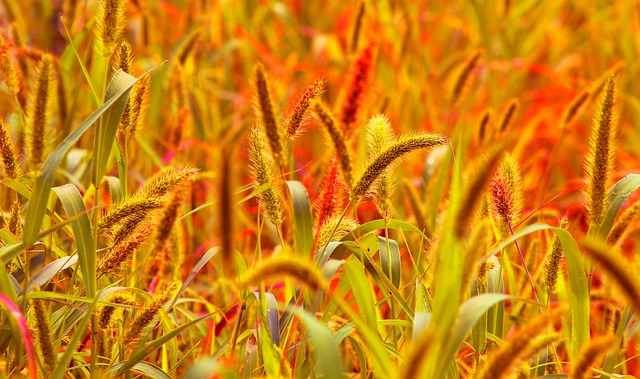
Publicado dia 17/04/2025
pinion paga mesmo 👁 Pinion Paga Mesmo: A Dilemma Between Tradition and Sustainable Practices in Brazil's Economy

pinion paga mesmo, 17/04/2025
Fala, galera! O tema de hoje é pinion paga mesmo, e também vamos explorar questões relacionadas a pinion paga mesmo. Espero ajudar a esclarecer suas dúvidas. Vamos nessa!
In the heart of Brazil’s diverse cultural and economic landscape, the phrase "pinion paga mesmo" resonates deeply among communities that thrive on traditional practices while grappling with the pressures of modernization. This saying underscores a truth cherished by many: the belief that hard work and dedication yield tangible returns despite changing times. Yet, as the nation stands at a crossroads, the implications of this belief warrant a nuanced examination—balancing the reverence for cultural heritage against the pressing need for sustainable practices in our economy.
The pinion, the seed of the Brazilian Pine tree, is more than just a culinary delicacy; it is a symbol of sustenance, identity, and resilience for many local communities. Harvesting these seeds, steeped in tradition, provides livelihoods to numerous families, offering them financial stability alongside a profound connection to their ancestry and environment. As these communities tirelessly collect and process the pinions—a labor-intensive endeavor, often passed down through generations—they consistently affirm that their efforts bear fruit. Indeed, pinion pays off; but is this model sustainable in the long run?
Ironically, while the phrase champions the concept of tradition and hard work as the foundation of prosperity, it simultaneously sheds light on the precarious nature of dependence on a single resource. The Brazilian Pine, now facing threats from environmental changes, including deforestation and climate variations, raises questions about the viability of a future hinged on traditional harvesting methods. As climate change disrupts ecosystems, local harvesters are increasingly aware that what once sustained them may no longer provide the same bountiful returns. The earth’s finite resources, often romanticized in folklore, demand urgent reassessment in contemporary economic practices.pinion paga mesmo

Moreover, the rise of global market dynamics poses additional challenges. As demand for pinions swells both domestically and internationally, commercial exploitation may overshadow traditional methods. With larger corporations often overshadowing family-run operations, the very essence of "pinion paga mesmo" risks dilution. The struggle isn't merely about financial stability but also the preservation of cultural integrity. Will the narrative shift from valuing hard-won tradition to succumbing to the allure of instant gratification in modern markets?pinion paga mesmo
Furthermore, the labor conditions faced by pinion harvesters are equally concerning. Many workers engage in backbreaking work under harsh conditions for meager pay, all underpinned by the erroneous belief that their relentless efforts translate into equity. The troubling reality is that often they are left vulnerable, grappling with low incomes that hardly support their families and communities. As such, the ideals encapsulated by “pinion paga mesmo” appear increasingly distant from their lived experiences, reduced to a familiar adage rather than a guiding principle.
Advocating for sustainable practices within this context requires a dual approach: reviving traditional practices alongside integrating modern sustainability initiatives. Education and community engagement are crucial. By fostering an awareness of sustainability and environmental management within local communities, they can cultivate a culture of resilience that strengthens their ties to both the land and each other. Increased investment in sustainability-focused projects would not only help to shield against the perils of overharvesting but also broaden economic opportunities.
O conteúdo a seguir ajudará a analisar pinion paga mesmo sob uma nova ótica.
Innovative farming practices, agroforestry, and the promotion of renewable resources present pathways towards preserving the integral relationship communities have with the pinion while ensuring future generations can continue benefiting from this precious resource. Diversifying agricultural practices, paired with sustainable harvesting techniques, can empower local economies and encourage intergenerational collaboration—a blend of tradition and modernity that fuels resilience.
As Brazil navigates the delicate balance between honoring cherished traditions and embracing sustainable practices, the responsibility lies not just with local communities but also with policymakers, corporations, and consumers alike. Champions of sustainability must prioritize the very principles that make culinary gems like the pinion valuable: hard work, community, and respect for the environment.pinion paga mesmo
In a world increasingly dictated by fleeting trends and superficial gains, the imperative of reconnecting with our roots, of understanding that “pinion paga mesmo” signifies more than just economic exchange, becomes ever clearer. It embodies a broader narrative of stewardship toward the land, a celebration of culture, and a commitment to nurturing a sustainable future. The journey ahead may be fraught with challenges, but it is one worth undertaking—a path that respects the past while building a progressive, inclusive, and resilient economy for tomorrow.pinion paga mesmo

Agradecemos a todos pela leitura, esperamos que este artigo tenha proporcionado insights sobre pinion paga mesmo. Se você tiver dúvidas sobre pinion paga mesmo, não hesite em compartilhar!